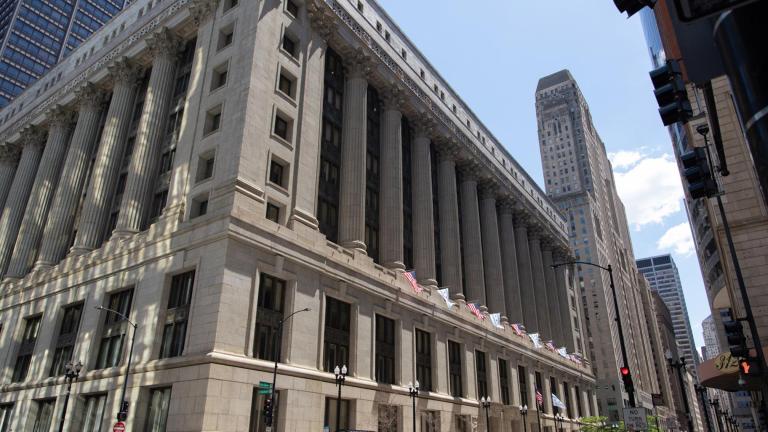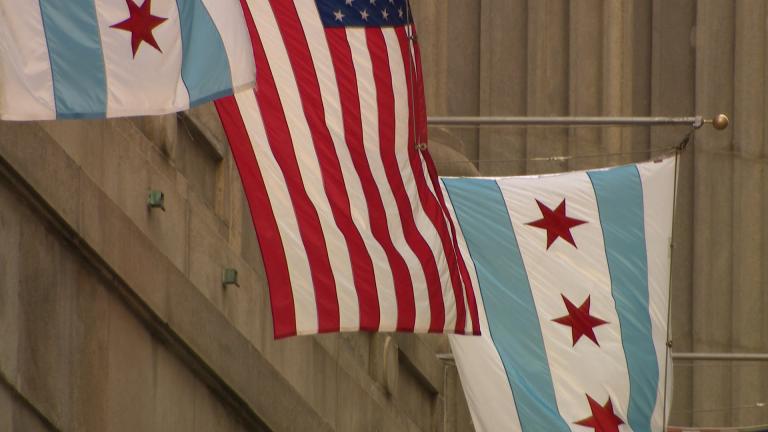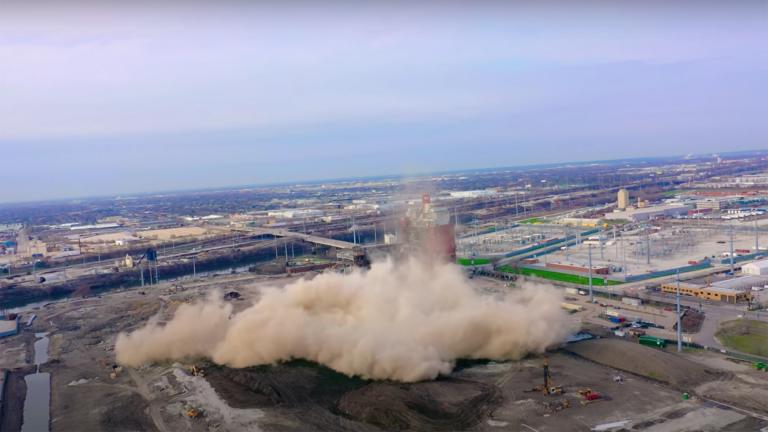A Cicero woman is optimistic that Mayor Brandon Johnson will release the full probe completed by the city’s inspector general into how the Chicago Police Department investigated the 2016 death of her 22-year-old son.
Courtney Copeland died while handcuffed after asking police officers for help after being shot. More than seven years after Copeland’s death, no one has been charged with his murder, and his mother, Shapearl Wells, hopes Johnson will make good on a campaign promise and help her get answers.
In response to questions posed by the Better Government Association during the mayoral campaign, Johnson said he would “absolutely” commit to the “timely release” of inspector general reports and “limit redactions only to sensitive and/or compromising information.”
“Why dither, or delay? Not only is access to information important, but so is expedient access to that information,” Johnson responded. “Urgency is evidence that these investigations and the subsequent reports are priorities to an administration, and as such, prioritized for the people of the city of Chicago.”
In one of her last acts before resigning in March as the city’s top lawyer, former Corporation Counsel Celia Meza denied Wells’ request for the full probe conducted by the Office of the Inspector General.
Meza’s decision left her demoralized, Wells said on the latest edition of the podcast “Somebody,” which sought answers about both her son’s murder and the Police Department’s search for his killer.
“I just feel so drained about not being able to find out the truth about what happened to my son,” said Wells, who partnered with journalist Jamie Kalven and the Invisible Institute to create the podcast, which was a 2021 Pulitzer Prize finalist.
A summary of the results of that probe was released in January, as required by city law. But Wells wants the full report to be public as part of her effort to prevent another mother from experiencing what she has.
Copeland was driving a BMW on March 4, 2016, when he was shot in the back on Chicago’s Far Northwest Side. Copeland made it to the police station at Grand and Central avenues, the headquarters of the 25th Police District, and pleaded for help before collapsing.
Approximately 13 minutes passed before an ambulance carrying Copeland departed for a trauma center. In the ambulance, Copeland’s heart stopped, according to documents obtained by the Invisible Institute.
When the ambulance arrived at the hospital, Copeland was in handcuffs, according to reporting by the Invisible Institute.
That reporting prompted former Inspector General Joseph Ferguson to launch a probe into the investigation of Copeland’s death — and the treatment Wells received at the hands of police officers.
The probe recommended two members of the Chicago Police Department face discipline for the way they responded to Copeland’s death, but neither officer faced serious punishment. Neither was named in the summary of the inspector general’s report, in keeping with city rules.
No member of the Chicago Police Department documented when and why Copeland was handcuffed. In addition, a sergeant violated department policy by failing to require the police officer “who placed the victim in handcuffs at some point prior to transport accompanied them in the ambulance to the hospital,” according to the summary of the inspector general’s report.
The sergeant was reprimanded by police officials, but the department declined to impose harsher penalties on him because the inspector general failed to find “by a preponderance of the evidence that the victim was, in fact, handcuffed prior to being transported to the hospital,” according to the summary of the inspector general’s report.
The inspector general’s probe also found that a “detective who conducted the investigation into the victim’s homicide was disrespectful to or mistreated a member of the victim’s family during a meeting,” according to the summary of the report.
The detective resigned from the Chicago Police Department before the probe’s conclusion, and the inspector general recommended that he be ineligible to be rehired by the city. Chicago police officials declined to do so, although they placed a copy of the inspector general’s report in his employment file.
Wells said Johnson’s victory and inauguration gives her new hope that she will eventually see the full report.
“It’s so important that we actually get this information out, not just for me, but for any of these other cases that they are holding back, giving us all the details,” said Wells, who campaigned for Johnson. “It is so crucial for the public to find out what’s actually happening in Chicago.”
A spokesperson for Johnson did not respond to inquiries from WTTW News about whether he will release the inspector general’s report in Copeland’s case or those detailing other high-profile cases, including the botched raid in February 2019 that left social worker Anjanette Young handcuffed while naked and pleading for help.
Young also campaigned for Johnson, who trumpeted her endorsement at a news conference outside City Hall.
Lightfoot’s administration repeatedly refused to release Ferguson’s 163-page report into the raid of Young’s home and the city’s response. That report documents “a failure of city government,” according to a summary of the probe.
In addition, Lightfoot refused to release the probe that found seven officers failed to follow Chicago Police Department rules and procedures after discovering former Police Supt. Eddie Johnson apparently passed out in his running car at a stop sign in Bridgeport in 2019, according to the city’s watchdog.
Lightfoot also refused demands by the Chicago City Council to release the probe into the April 2019 implosion of the smokestack at the former Crawford Power Plant. That probe found Chicago officials could have prevented a plume of dust from enveloping Little Village in the early days of the COVID-19 pandemic by requiring the firms to get a new permit before using explosives to bring down the smokestack, according to the confidential report by the city’s watchdog obtained by WTTW News.
The Chicago City Council approved an ordinance in July 2019, backed by Lightfoot, which gave the city’s top lawyer the power to release investigations from the inspector general about cases involving deaths or felonies.
That means the decision whether to release the Copeland and Young reports could soon rest with Mary Richardson-Lowry, Johnson’s pick to serve as the city’s top lawyer. A veteran of former Mayor Richard M. Daley’s administration, Richardson-Lowry would be the first Black woman to serve as the city’s corporation counsel if confirmed by the Chicago City Council.
Inspector General Deborah Witzburg, Ferguson’s replacement, told WTTW News that since the probe into the investigation of Copeland’s murder involves a death and includes findings of misconduct, it meets the criteria to be released under the city’s law, but the city’s top lawyer is under no obligation to do so.
Lightfoot’s administration never used the law to release complete inspector general reports from her time in office, instead focusing on scandals that occurred under her predecessors.
Lightfoot released the full probe into the investigation of the 2014 police murder of Laquan McDonald; a probe that found two high-ranking police officials interfered with the investigation of the shooting death of a Chicago police sergeant; and the probe of the death of David Koschman, who died after being punched by Richard Vanecko, Daley’s nephew.
Contact Heather Cherone: @HeatherCherone | (773) 569-1863 | [email protected]








